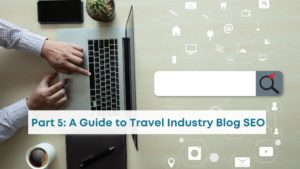
As a tourism owner and operator, how do you leverage Google in your business?
Some of you may be using Google Suite or Google My Business. It’s also possible you are buying Google ads to improve your search rankings. Well, guess what? Lots of changes have taken place in Google in the travel place. Now is the time that you should take Google seriously for your business, so you can prepare for the impact it may have on tourism in the future.
The Traveler is the Center of Your Business, Here’s How Google Focuses on Travelers.
Google has publicly announced their main goals for their tourism products. Here’s the rundown:
- Google made it very clear that they want to play a role in the entire traveler journey – from searching for information to booking everything – flights, hotels, tours, etc. They want to be a trusted resource and to make the entire process smooth and seamless.
- They want to eliminate the stress of travel planning by making it easy for users to plan all aspects of their trip. They do this by employing a functional user experience using a full set of information to help users come up with a decision.
- They extend full support to users across the entire journey – and since they often search several pieces of data over a period of time, they help users pick up where they left off.
- Google wants to capitalize on the massive increase in travel search queries. These are the “near me” searches of travelers (typed or verbal searches for hotels near me, restaurants near me, or attractions near me). These kinds of searches are growing 6x faster than any other information search.
The Challenge for Every Tourism Business Including Yours?
The Guest’s Journey to Purchase
Google recognizes the most challenging part of the travel business – understanding the buyers’ journey to purchase because it’s different for everyone.
As a travel business, you have this challenge, too. For instance, one potential guest may book within 10 minutes of finding you, while others may take weeks or even months. They search with many different devices across many different platforms and websites.
When will they book? That is the biggest question. So, Google wants to find a way to anticipate this process and understand the intent of their trip planning. Anticipating their intent will allow travelers to book easily, efficiently, and quickly! All the information will be at their disposal, so it’s more convenient for them to press that purchase button.
How Google Travel Products Evolved and What You Need to Know
1. Google Travel Replaced Google Trips
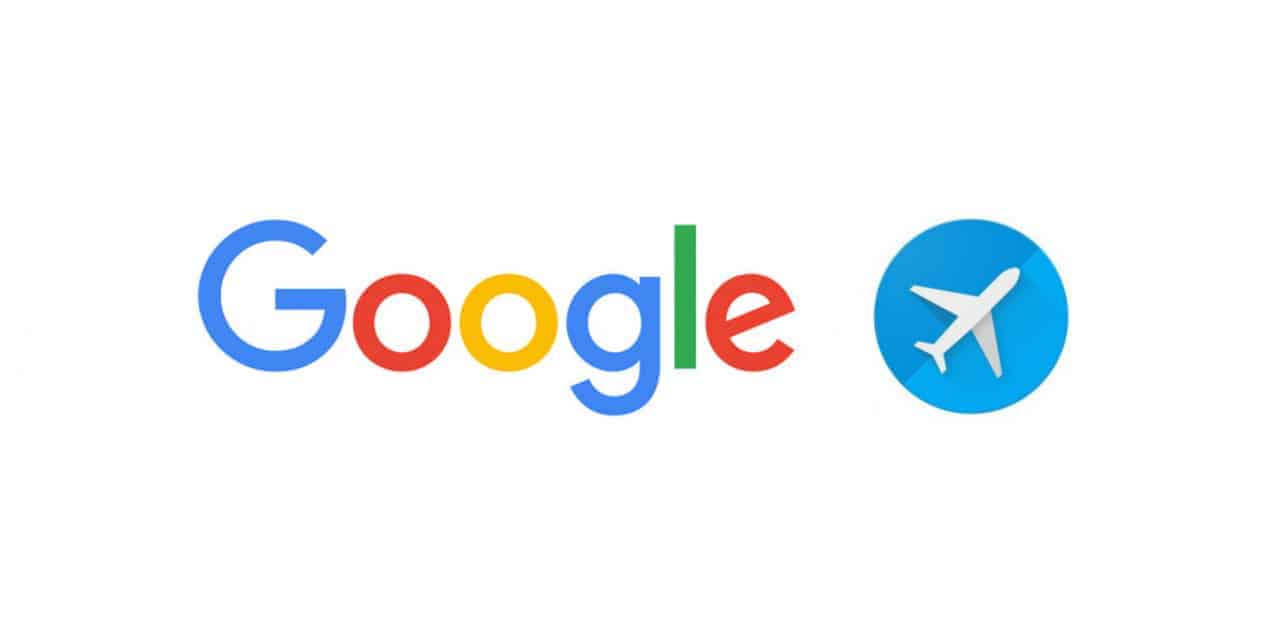
Google Trips has now shut down and became Google Travel – a platform that includes Google Flights and Google Hotels. These are Metasearch products because they let the traveler choose between different flight and hotel options offered by many airline and hotel partners.
A. Google Flights Enhancements
With over six years in marketing, Google Flights is a significant player in flight bookings. Recently, they added some new features to make booking easier, allow guests to see the best prices, and ease the pain of flight delays. For instance, a new feature shows travelers if the price for a flight is low, medium, or high according to its usual price. Another feature shows if the flight price is likely to drop before the plane takes off.
Because of the vast amounts of data and machine learning, Google can now show the traveler whether the flight will be delayed or not. While this is not new, they can even predict this before the airlines or airport authorities do. As if this isn’t enough yet, they can also indicate the reason for the delay. This way, travelers get accurate, detailed and specific information without ever having to leave Google!
B. Google Hotel Search
Google is now the leading brand in metasearch for hotels. Now, more than ¾ of all travelers use metasearch or hotel comparisons in their search process. In a short time, it’s beating out the likes of Kayak, Trivago, and HotelsCombined. The benefit of metasearch is it gives you the ability to search for a range of options without ever leaving your browser.
Implications for Your Business
Are Google Flights changing the behavior of travelers forever? Well, it’s no doubt they raised the bar on data and information, which makes pricing more critical than ever. How will this change the technology landscape for booking all the travelers’ needs? What will happen to the big players like Priceline and Expedia?
If you’re a hotel operator but aren’t working with Metasearch engines, you’re clearly missing out on what your guests are using to book hotels. As consumers, they want the easy way, so comparisons will greatly help them make a decision. As a result of Google’s dominance, the landscape of players will shift and change, so it’s ideal to look at a balanced approach of participation across different options.
OTAs are adapting to the change and putting more money into building their brands. Now, what impact will this have on commissions and players in the market?
2. Reserve With Google
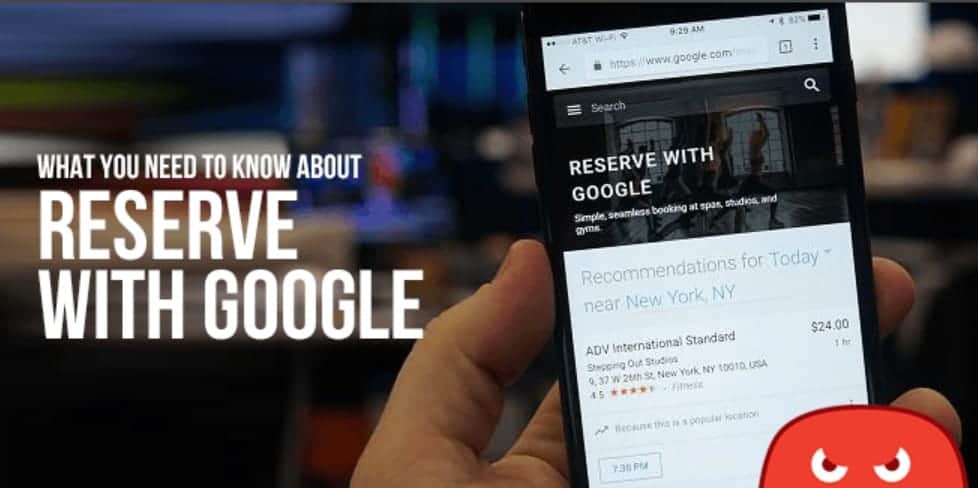
If you haven’t heard about Reserve with Google yet, now’s a good time to take a look at this. Reserve with Google is a service that enables consumers to find and book appointments, classes and event tickets directly through regular Google Search, Google Assistant, and Google Maps.
As a user, you can book and pay for a service without the need to call the business or leave your browser! What a timesaver, right? While this service isn’t available everywhere yet, you can bet it’s going to change the booking landscape!
Implications for Your Business
Reserve with Google is capitalizing heavily on the growth of ‘near me’ queries. Google works with suppliers and partners to offer the service, so how will it impact your business? How can you participate in Google Reserve? Although it is yet to be available everywhere, you do need an account with Google and scheduling software. Don’t you think it’s about time to check it out? As the cliché goes, “the early bird catches the worm”, so get involved early! Check out Reserve with Google and find out more.
3. Touring Bird
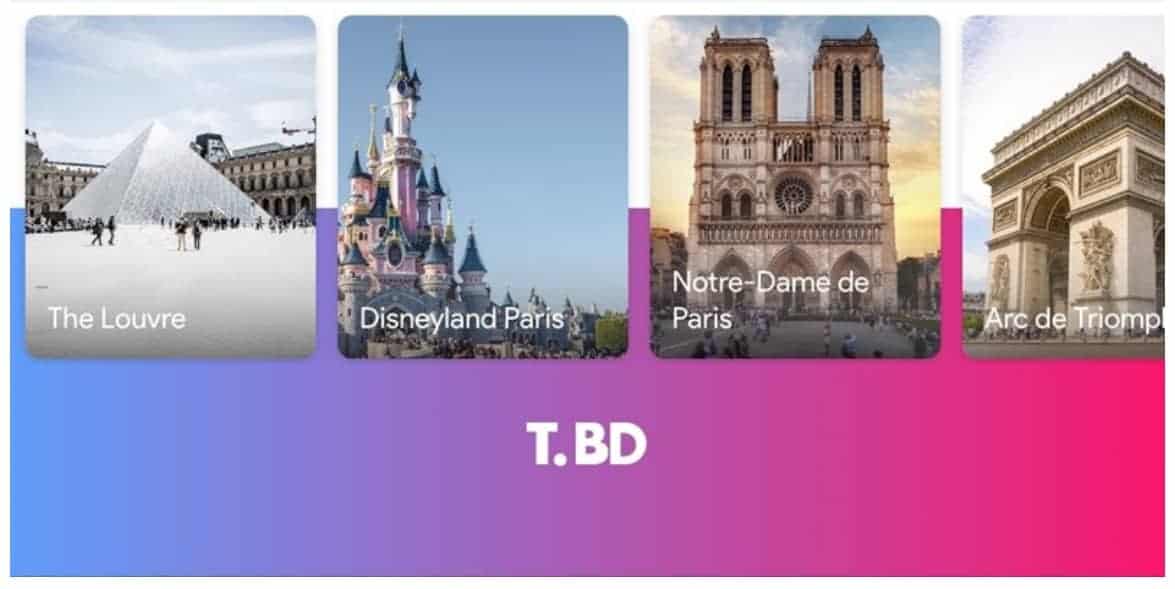
What was once an experiment in the Google Labs of Area 120, Touring Bird is now a full-fledged app that aggregates content from many OTAs in over 200 locations around the world. They even hired bloggers to develop thousands of pages of local content. Amazing, right? And now that this project is a heavily-invested product of Google, it’ll be wise to watch and see how this business grows.
Why not check out Touring Bird and see where and what activities they are promoting?
Implications for Your Business
Here’s the question for you: are you represented on Touring Bird through your OTAs? If yes, how are your products presented and marketed? And if not, why not? Do you know their criteria for choosing their products? Ask your partners how you can be included.
Google is working with OTAs, and at the same time, they are also cutting away at the share of their primary businesses. Since OTAs are starting to invest more in branding to build awareness and trust with travelers, it’s going to be really interesting to see who stays on top of tour and attraction booking!
4. Google My Business Changes
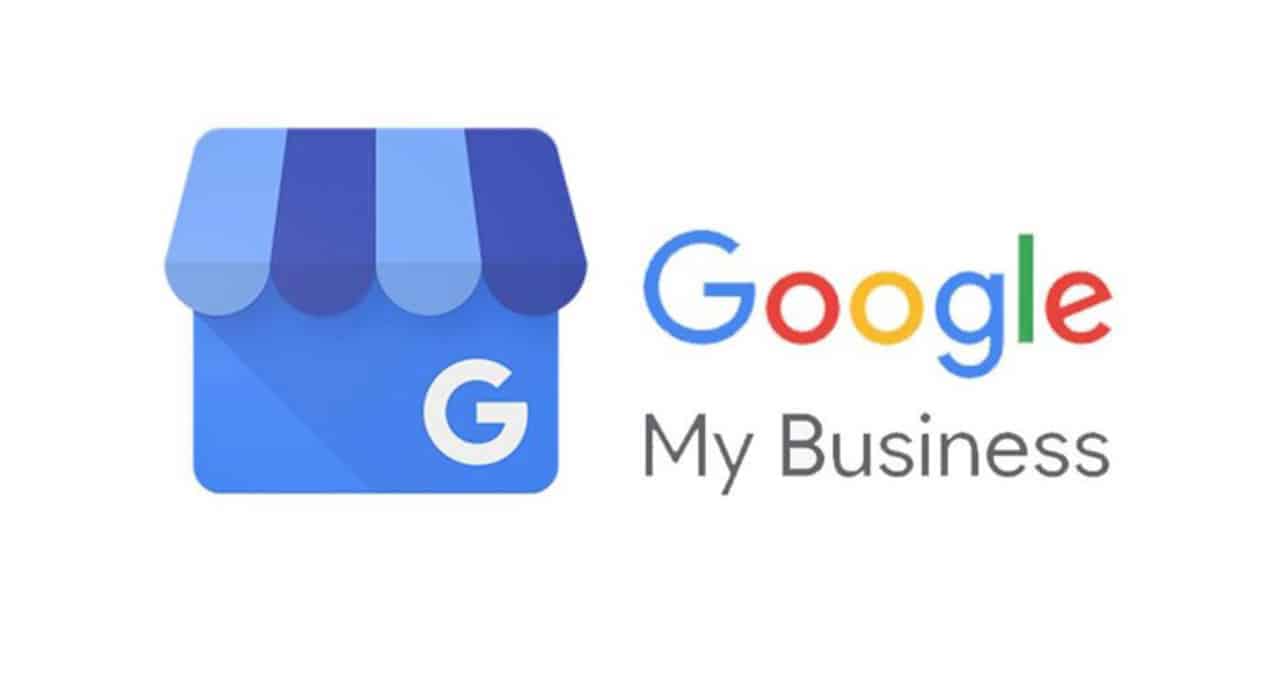
First things first, Google My Business should be your priority. Designed for business owners, Google My Business lets you have more control of what appears on Google Search and Maps when someone searches for your business name.
Did you know that among the different generations, Millennials (those born in years 1981-1996) use Google the most for travel reviews? Even if Millennials aren’t your primary target, time doesn’t standstill. They’re growing up and becoming parents and continue to be a powerful travel spending force. It’s also interesting to note that many of them prioritize travel ahead of buying a home!
So if you don’t have a business listing in Google, what are you waiting for?
Google recently announced some new marketing tools to improve your branding and allow travelers to find you more easily. These elements are slowly rolling out in locations around the world.
These features allow you to highlight your business better and market it to your prospective travelers.
a. A new carousel/slide show that lets you show off your pictures to online searchers with the ability to add captions soon. We all agree that great pictures are one of the best ways to capture attention.
b. Local favorites – This is a way to make your business stand out. Imagine your business having a favorite local business badge, which, by the way, is only awarded to the top 5% of the businesses in a category! It would be like having a Certificate of Excellence on TripAdvisor! The sad part is that at this point, Google is very vague on the criteria for qualification (see implications for your business below).
c. New short URL or nickname – A shortened @name feature was added which allows you to shorten your name for improved searchability on Google Maps. Currently, you can apply for your new shortened name if you wish. Of course, we aren’t sure of the full impact of this new feature yet, but anything that helps with better visibility is a good thing, don’t you think?
d. Add a logo to your business profile in the upper right part of your profile. I haven’t seen this feature yet, so why not check your listing and add your logo if you can? Remember, any opportunity to improve your visibility and branding would benefit your business
e. Welcome offers — These can be sent to customers/prospects. They are basically ads, but it would be worth to test if it brings in additional traffic. Perhaps you could communicate something that you already offer? After all, there’s no harm in trying this.
f. Marketing and promotional assets — Google is launching a new site to create and order posters, stickers, and other promotional assets. I’m not sure about this one, but this would be something you could develop yourself.
Implications for Your Business:
Indeed, a lot is going on with Google products, and Google My Business should be at the top of your list.
There’s no doubt in my mind that Google will favor brands that have an active and successful Google My Business profile. So remember this: given the plethora of other travel products, having a good standing with Google and ranking on your website will only benefit your business!
This means you need to:
- Ask for reviews from your guests on Google, not just on TripAdvisor.
- For tips on how to do this, we have loads of suggestions on improving your reviews in our Free Ebook. You can download it here or take it a step further and take our Mastering Reviews Course.
- Update your profile and pictures regularly and include the top images of your services, staff, and guests.
- Take advantage of these newly released branding and promotional tools – try and test them out!
If you don’t have a Google My Business account, please sign up now as it takes time to validate your business (as long as you have an office/physical location of some kind). Do note the following:
- You cannot include a pick-up point address as it must be a physical address.
- Your business cannot be 100% online.
GMB is free, and it’ll grow awareness of your business even more so after this recent news.
Do you feel a little more current on what’s happening with the powerhouse Google in the travel industry? Do you see its potential impact on your business now? Get your Google My Business reviews in good standing with this course. To find more industry news, tips, and trends, check out our previous posts here.




